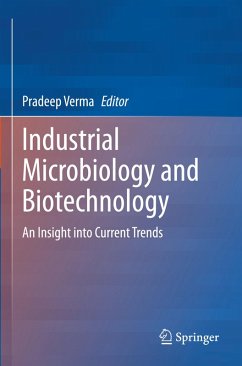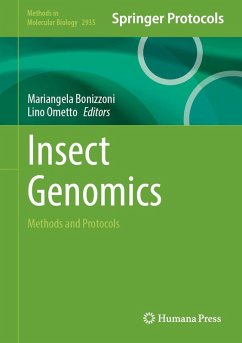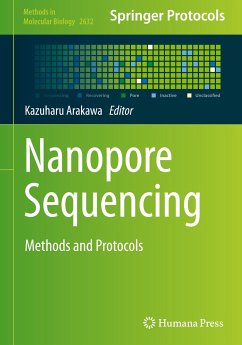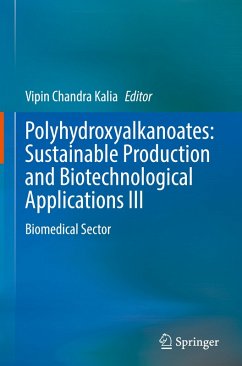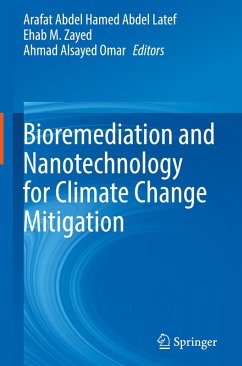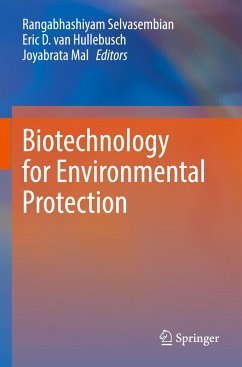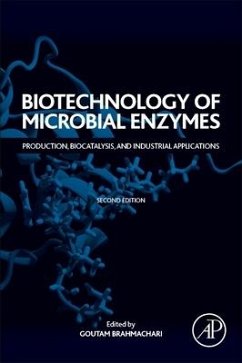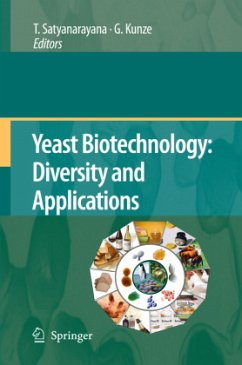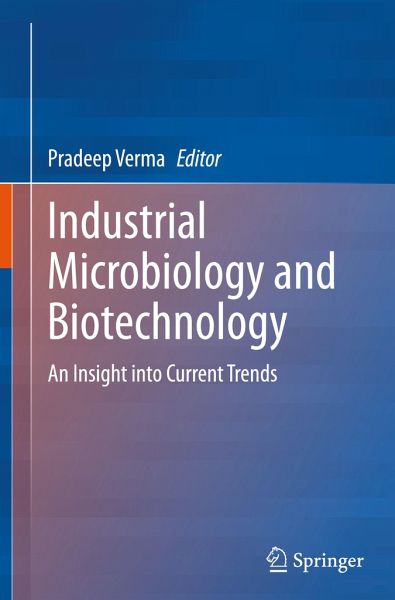
Industrial Microbiology and Biotechnology
An Insight into Current Trends
Herausgegeben: Verma, Pradeep

PAYBACK Punkte
95 °P sammeln!
This book provides an in-depth exploration of microbial biodiversity and its crucial role in diverse biotechnological and industrial sectors. It covers topics such as the integration of molecular approaches for identifying industrially significant strains, omics roles in the production of bioproducts, and modern genetic engineering techniques. It discusses biostatistical investigations and the impact of microbial biotechnology on healthcare and emerging contaminants. It highlights the significance of food microbiology, fermentation, and the latest technologies in improving human health. Additi...
This book provides an in-depth exploration of microbial biodiversity and its crucial role in diverse biotechnological and industrial sectors. It covers topics such as the integration of molecular approaches for identifying industrially significant strains, omics roles in the production of bioproducts, and modern genetic engineering techniques. It discusses biostatistical investigations and the impact of microbial biotechnology on healthcare and emerging contaminants. It highlights the significance of food microbiology, fermentation, and the latest technologies in improving human health. Additionally, the book delves into emerging trends in oligosaccharide production, biobased approaches for a sustainable future, and the importance of microbial biomolecules and secondary metabolites. It also explores the identification and production of industrially significant biocatalysts/enzymes, the valorization of agro-industrial waste using microorganisms for green energy generation, andthe development of bioreactor systems for the biobased economy. The book covers advancements in solid-gaseous biofuels production, impact assessment of synthetic microfiber pollution, sustainable management strategies for waste management, and the impact of emerging technologies in medical microbiology. The book also discusses the development of healthcare products using nano-biotechnological advancements, the impact of novel remediation technology, and the utilization of microbial products in biomaterial development. It further explores microbial regulatory systems, gene expression studies, and the significance of mutations in microbial technology.
This book serves as a great reference for researchers, environmentalists, microbiologists, biotechnologists, and graduate, post-graduate students, and doctoral students working on microbial biotechnology and industrial microbiology.
This book serves as a great reference for researchers, environmentalists, microbiologists, biotechnologists, and graduate, post-graduate students, and doctoral students working on microbial biotechnology and industrial microbiology.





